Information from the Ho Chi Minh City Department of Health confirmed that the increase in respiratory diseases in children is not due to new respiratory diseases.
Doctor rumored to have new respiratory disease
The current increase in respiratory illnesses in children is not a “new respiratory disease”.
The main causes are common viruses such as Rhinovirus, respiratory syncytial virus (RSV), Adeno, seasonal flu... that often appear when the weather changes seasons.
 |
| Illustration |
According to statistics from Children's Hospital 1, Children's Hospital 2 and Children's Hospital City, children with common respiratory diseases often occur in the last months of the year.
Specifically, statistics from Children's Hospital 1 show that the number of children hospitalized due to respiratory diseases during the period from September to December every year tends to increase.
The main causes are common viruses such as Rhinovirus, Respiratory Syncytial Virus (RSV), Adeno, seasonal flu... Respiratory diseases often appear when the weather changes, creating favorable conditions for viruses and bacteria to develop.
According to statistics, in 2024, Children's Hospital 1 received the same number of patients with respiratory diseases as in the same period in 2023 and previous years.
Specifically, as of October 6, 2024, the number of patients with bronchiolitis recorded at Children's Hospital 1 was 4,693 cases (equivalent to 129% compared to the same period in 2023), the number of patients with pneumonia was 8,176 cases (equivalent to 90.8% compared to the same period in 2023).
Compared to the 5-year period from 2019 to 2024, the number of respiratory patients in 2024 will not fluctuate significantly, the number of patients with bronchiolitis will fluctuate around 5,000 cases/year and pneumonia will fluctuate around 10,000 cases/year. The situation is similar at other hospitals with pediatric departments in Ho Chi Minh City.
The respiratory disease surveillance system of the City Center for Disease Control also recorded that on average, the whole city has about 17,000 cases of acute respiratory disease each week; the progression fluctuates seasonally.
The weeks with the lowest number of respiratory infections were in the period of February - March and the weeks with the highest number of cases were in the period of October - December with more than 20,000 cases/week. The number of cases in children accounted for about 60% of the total cases in the city and had a similar progression.
During the changing seasons and especially when entering the school year, respiratory diseases in children tend to increase due to fluctuating weather factors and the spread in the classroom environment.
To prevent and limit the increase of respiratory diseases during this period, the health sector recommends that people and educational institutions take the following measures:
Ensure clean and airy classrooms: Educational facilities, schools, nurseries, and kindergartens need to regularly clean and keep classrooms airy.
Strengthening monitoring of children's health: Educational institutions need to closely monitor students' health, early detect cases with symptoms of fever, cough, runny nose to promptly notify medical facilities.
Supplement with a reasonable diet: A complete diet helps children increase their resistance to prevent disease.
Practice good personal hygiene: Children should wash their hands regularly with soap and clean water. This helps reduce the risk of contracting respiratory infections.
Full vaccination: Parents need to take their children to medical facilities for full and timely vaccination according to the instructions of the health sector. Vaccination will help strengthen the child's immune system.
The Health Department also recommends that parents should not be too worried, but instead follow disease prevention measures to protect the health of children and their families. The respiratory disease situation in the City is still well controlled and has not shown any unusual signs compared to previous years.
To address the overload situation, the City Health Department has strengthened patient admission and treatment, infection control and cross-infection prevention in medical examination and treatment facilities.
Hanoi: Increase surveillance and epidemiological investigation of infectious diseases
The Hanoi Health Department believes that some diseases such as dengue fever, hand, foot and mouth disease, measles, whooping cough, etc. may continue to increase in the coming time, especially dengue fever which is at its peak every year in Hanoi. In addition, rubella, meningococcus, streptococcus suis, Japanese encephalitis, etc. may record sporadic cases in the coming time.
According to information from the Hanoi Center for Disease Control (CDC), during the week (from September 27 to October 3), the entire city recorded 284 cases of dengue fever, an increase of 5 cases compared to the previous week.
Patients are distributed in 29 districts, towns, and cities, of which some districts have recorded many patients such as: Dan Phuong (35 patients); Thanh Xuan (30 patients); Ha Dong (25 patients); Thanh Xuan (21 patients); Chuong My (18 patients). The cumulative number in 2024 is 3,814 cases, with no deaths, a decrease of 78.7% compared to the same period in 2023.
Hand, foot and mouth disease also recorded 41 cases (down 24 cases compared to last week). Accumulated from the beginning of 2024 to now, the whole city has recorded 2,112 cases, with no deaths.
In addition, four cases of measles were recorded, including two unvaccinated cases and two vaccinated cases. The cumulative total in 2024 is 17 cases.
Specifically, the female patient (10 months old, Tay Ho address) had no history of measles vaccination, onset of illness on September 15, examined at Medlatec Hospital, measles IgM test positive.
Male patient (9 months old, address Dan Phuong), no history of measles vaccination, onset of illness on September 27, examined at the National Children's Hospital, measles IgM test positive.
Female patient (18 months old, address Ha Dong) was vaccinated against measles, onset of illness on September 14, daytime September 15, examined at the National Children's Hospital, measles test positive.
Female patient (21 months old, address Nam Tu Liem), history of measles vaccination, onset of illness on September 20, examined at the National Children's Hospital, measles test positive.
Notably, during the week the city recorded three more cases of whooping cough in the districts of Dong Anh, Nam Tu Liem, and Tay Ho, an increase of two cases compared to last week.
The cumulative total in 2024 is 236 cases in 29 districts, towns, and cities, with no deaths. By age group, there are 143 cases under two months (60.6%); 46 cases from 3 to 12 months (19.5%); 20 cases from 13 to 24 months (8.5%); 17 cases from 25 to 60 months (7.2%); 10 cases over 60 months (4.2%). Other epidemics such as Covid-19, Japanese encephalitis, meningococcus, and rubella were not recorded during the week.
According to the leader of the Hanoi Department of Health, the epidemic situation and the number of dengue fever cases in Hanoi may increase rapidly in the coming time because it is at the peak of the annual dengue fever epidemic.
Meanwhile, measles has begun to increase, with sporadic cases reported in the area, mainly in children who are not yet old enough to be vaccinated or have not been fully vaccinated; whooping cough continues to appear sporadically, mainly in children who are not yet old enough to be vaccinated or have not been fully vaccinated.
In addition, rubella, meningococcus, streptococcus suis, Japanese encephalitis... may record sporadic cases in the near future.
To proactively prevent and control epidemics promptly and effectively, especially to prevent the spread and outbreak of epidemics in the community, the Hanoi Department of Health continues to request the local health sector to continue to strengthen the surveillance of dengue fever and suspected measles rash fever, conduct epidemiological investigations of infected and suspected cases, organize zoning and thoroughly handle areas with patients and outbreaks according to regulations.
Local health units coordinate with relevant units, especially the education sector, to review the measles vaccination history of all children aged 1 to 5 years living in the area to prepare for the implementation of additional measles-rubella (MR) vaccination for children aged 1 to 5 years who have not been fully vaccinated according to the direction of the Ministry of Health and the City People's Committee.
Closely coordinate with the veterinary sector to closely monitor the rabies epidemic situation in animals; implement inter-sectoral activities to prevent and control diseases transmitted from animals to humans.
At the same time, promote communication work, timely and complete information on the epidemic situation; measures to prevent and control some diseases such as dengue fever, whooping cough, measles, hand, foot and mouth disease... For diseases with vaccines, people are advised to proactively get vaccinated fully and on schedule according to the instructions of the health sector.
Successful treatment of two allogeneic bone marrow transplants for patients with thalassemia
Hue Central Hospital has just successfully performed the first two allogeneic bone marrow transplants for patients with thalassemia.
The first case is patient Tran Viet Th. (42 months old, residing in Da Nang City). Since the age of 2, Th. was diagnosed with congenital hemolytic anemia and had to receive monthly blood transfusions at the hospital.
Doctors tested HLA and the results showed that the child was a perfect match with his biological sister. Under the guidance of Professor Lawrence Faulkner (Germany), the team of doctors at Hue Central Hospital successfully performed a bone marrow transplant for Th.
Although he suffered from a rare complication of diffuse alveolar hemorrhage, thanks to the timely care and detection of the medical team, Th. has recovered and is now discharged from the hospital, with a regular follow-up appointment at the hospital.
The second patient is Pham Le HV (8 years old, also living in Da Nang City). V. was diagnosed with thalassemia at 17 months old and has had to receive monthly blood transfusions since 2018 at the Da Nang Obstetrics and Pediatrics Hospital.
After testing, the child was a perfect match with her sister. Therefore, she underwent an allogeneic bone marrow transplant. During the transplant, she had complications of neutropenia, but the infection was mild and she recovered quickly.
According to Professor, Dr. Pham Nhu Hiep, Director of Hue Central Hospital, congenital hemolytic anemia is a group of many different genetic diseases characterized by the absence or reduction of normal hemoglobin production, causing microcytic anemia.
For moderate and severe cases, children must depend on blood transfusions, which affects their quality of life. In particular, when children reach adulthood, anemia greatly affects physical and mental development, and patients suffer from severe bone pain due to extramedullary hematopoiesis.
The best treatment is a bone marrow transplant, giving the child a new life. From now on, the child no longer has to depend on blood transfusions, is healthy and has normal development like other children.
The success of allogeneic bone marrow transplantation in patients with thalassemia major is not only a hope for children with thalassemia major, but also brings hope to children with other diseases that require allogeneic bone marrow transplantation such as bone marrow failure, congenital immunodeficiency, recurrent cancer, etc. treated at Hue Central Hospital.
Source: https://baodautu.vn/tin-moi-y-te-ngay-810-bac-tin-don-co-benh-ho-hap-moi-d226820.html





![[Photo] Visiting Cu Chi Tunnels - a heroic underground feat](https://vstatic.vietnam.vn/vietnam/resource/IMAGE/2025/4/8/06cb489403514b878768dd7262daba0b)


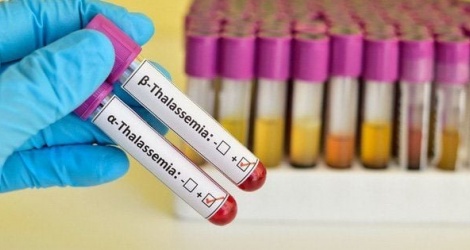

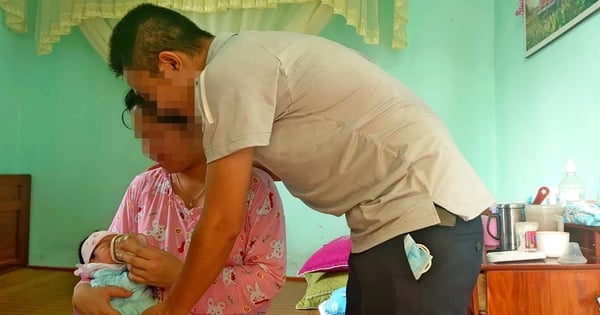


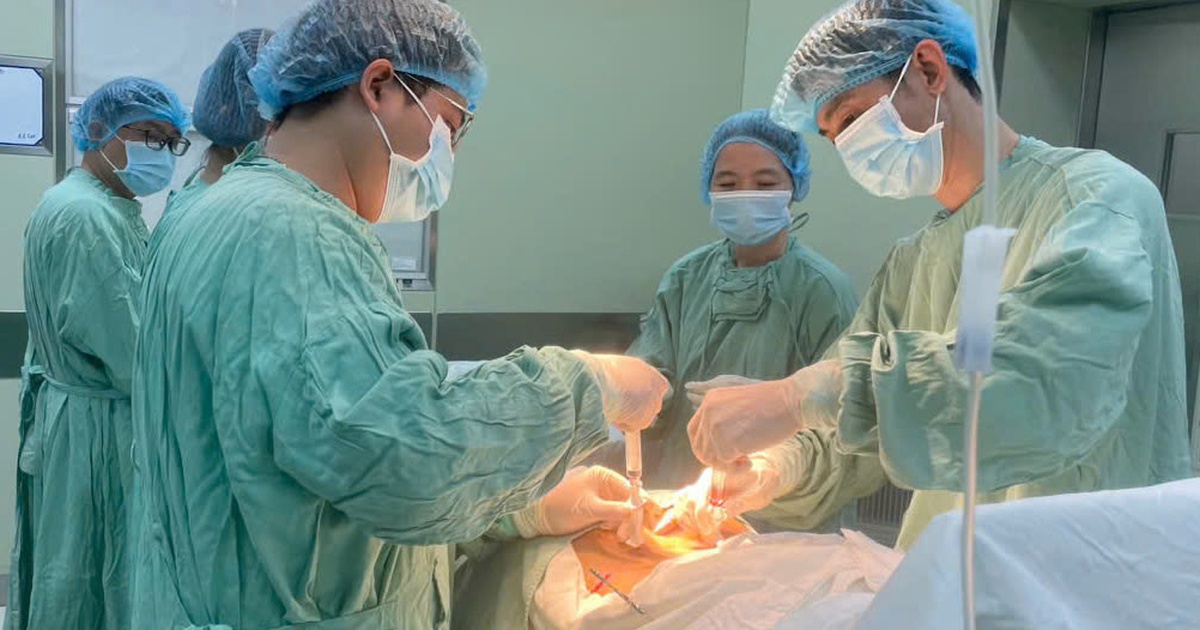


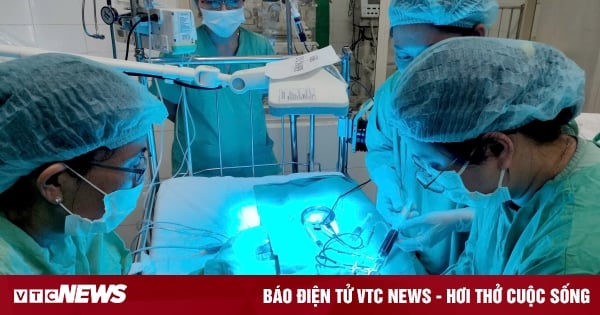



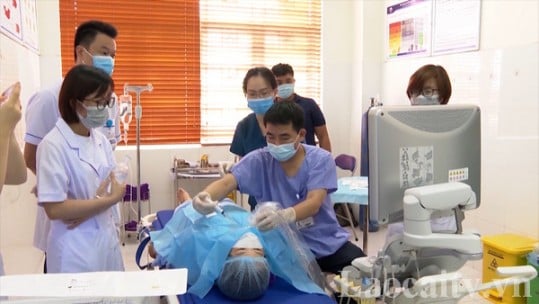








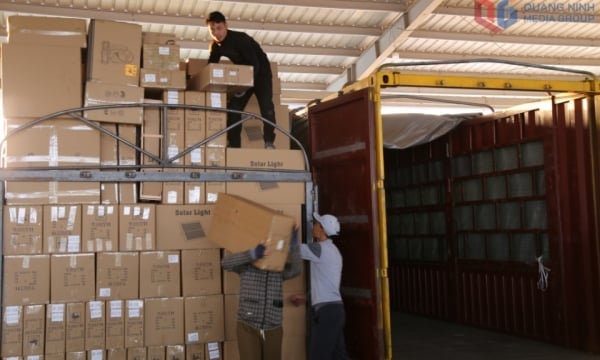


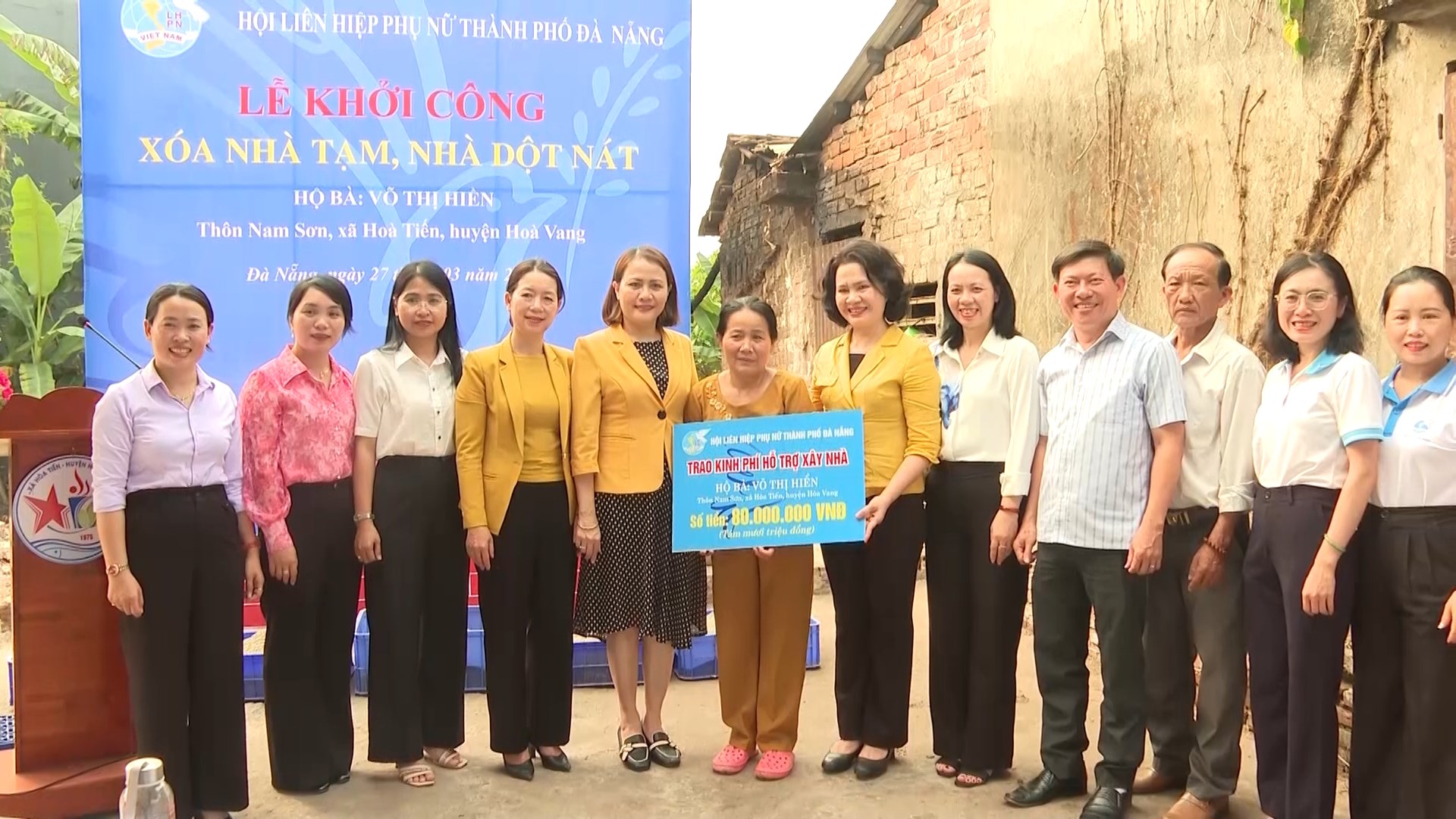










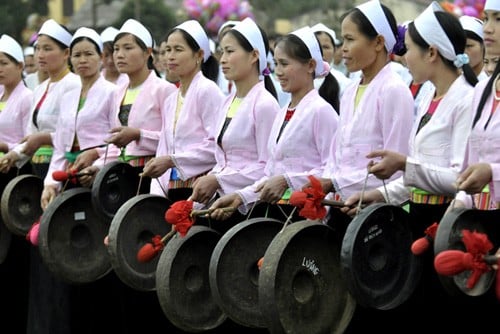












































Comment (0)